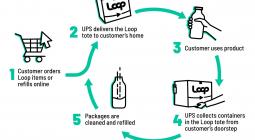Fast food giants under fire on climate and water usage

A coalition of investors is calling on McDonalds, KFC, and other fast food suppliers to take swift action on climate change.
The group, with around $6.5 trillion under management, want the chains to cut carbon and water risks in their dairy and meat suppliers.
Animal agriculture, they argue, is one of the highest emitting sectors without a low CO2 plan.
They're calling for public, time limited targets for reducing impacts.
The investors group have targeted some of the largest companies in the global fast food sector that's said to be worth $570bn.
These include the owners of McDonalds, Domino's Pizza, Burger King, Chipotle Mexican Grill, Wendy's, Pizza Hut and KFC.
More than 80 investors have signed a letter to the fast food giants asking them to "enact meaningful policies and targets" to reduce the carbon footprint of their meat and dairy supply chains.
They are concerned by an analysis of the meat and dairy producers that supply the fast food giants.
Agricultural emissions including those from meat and dairy are on track to contribute around 70% of the total allowable greenhouse gas emissions by 2050 that would the keep rise in the world's temperature under 2C this century.
The livestock sector is also estimated to use approximately 10% of annual global water flows.
In their letter, they are calling on the chains to put in place clear requirements for suppliers of animal proteins to report and reduce their greenhouse gases and their freshwater impacts.
They want the companies to publish quantitative, time bound targets for reductions and commit to publicly disclose the progress on these targets.
![]()
The investors say they are calling for these steps to help these fast food companies minimise their future risks.
"When it comes to evaluating market risk, rising global temperatures and intensifying competition for water access are increasingly material factors for investors," said Eugenie Mathieu, from Aviva Investors, one of the signatories.
"This is especially the case in the meat and dairy sector. From field to fork, investors want to understand which food companies are monitoring and minimising the long-term environmental risks in their supply chain. This engagement sends a clear message to the fast food sector that investors expect them to deliver sustainable supply chains."
Consumption of meat and dairy produce has been under renewed focus in recent weeks, after the EAT-Lancet commission report.
Their experts suggested that a sustainable, "planetary health diet" to feed an expected population of ten billion people by mid century would imply a 90% reduction in red meat and milk consumption.
If these recommendations are to have any real impact, the fast food sector will have to take stronger measures.
"Investors are eager to see more leadership from these companies to reduce the mounting climate and water risks linked to their meat and dairy suppliers," said Mindy Lubber, from Ceres, the nonprofit organisation working with investors on climate, water scarcity and pollution.
"From eliminating deforestation to reducing water waste, cleaning up their supply chains will have enormous impacts on the animal agriculture sector as a whole, and dramatically increase our ability to meet the goals of the Paris Agreement to limit global warming."
The companies behind the letter are calling for meaningful action by March.
29 January 2019
Matt McGrath
![]()



